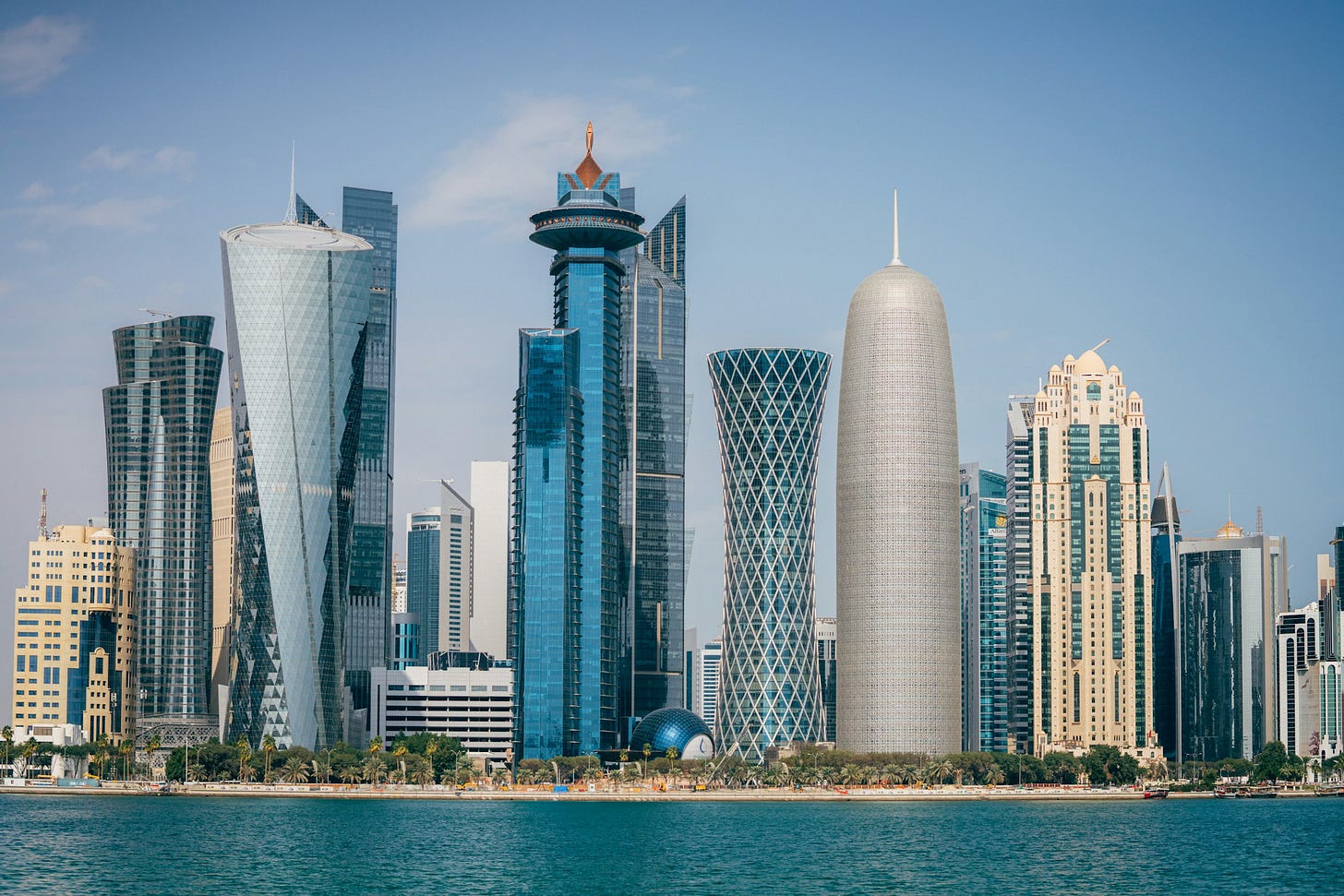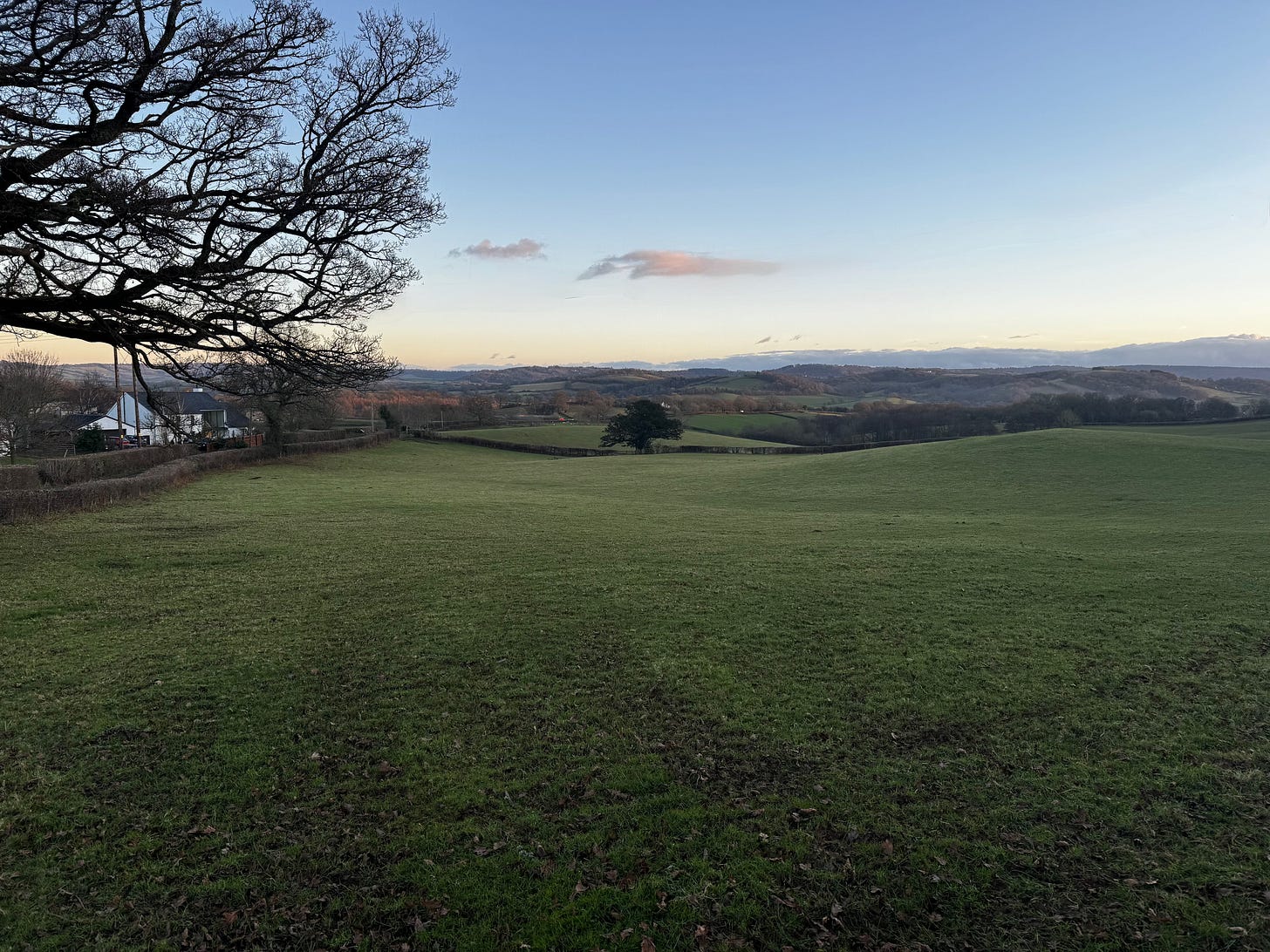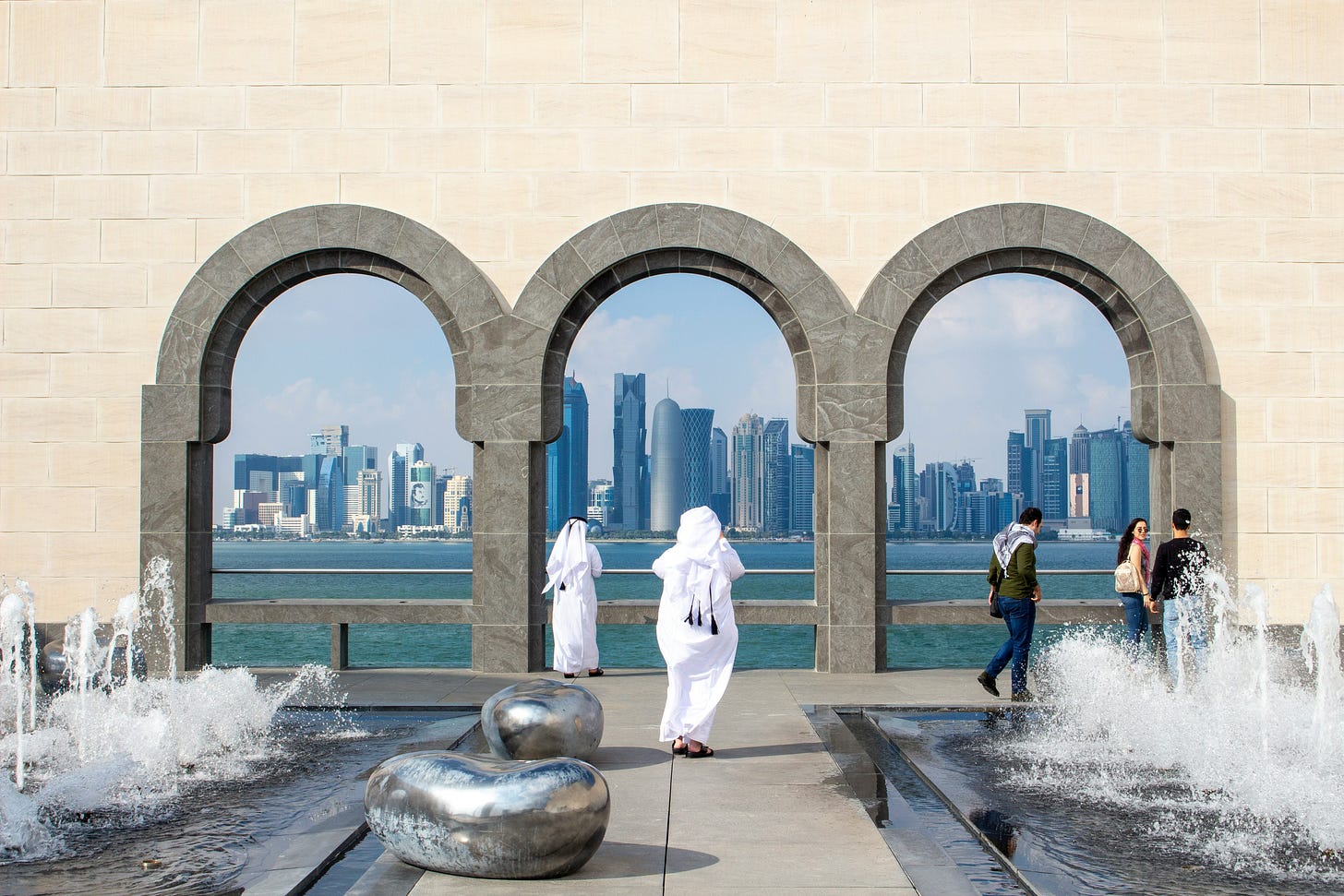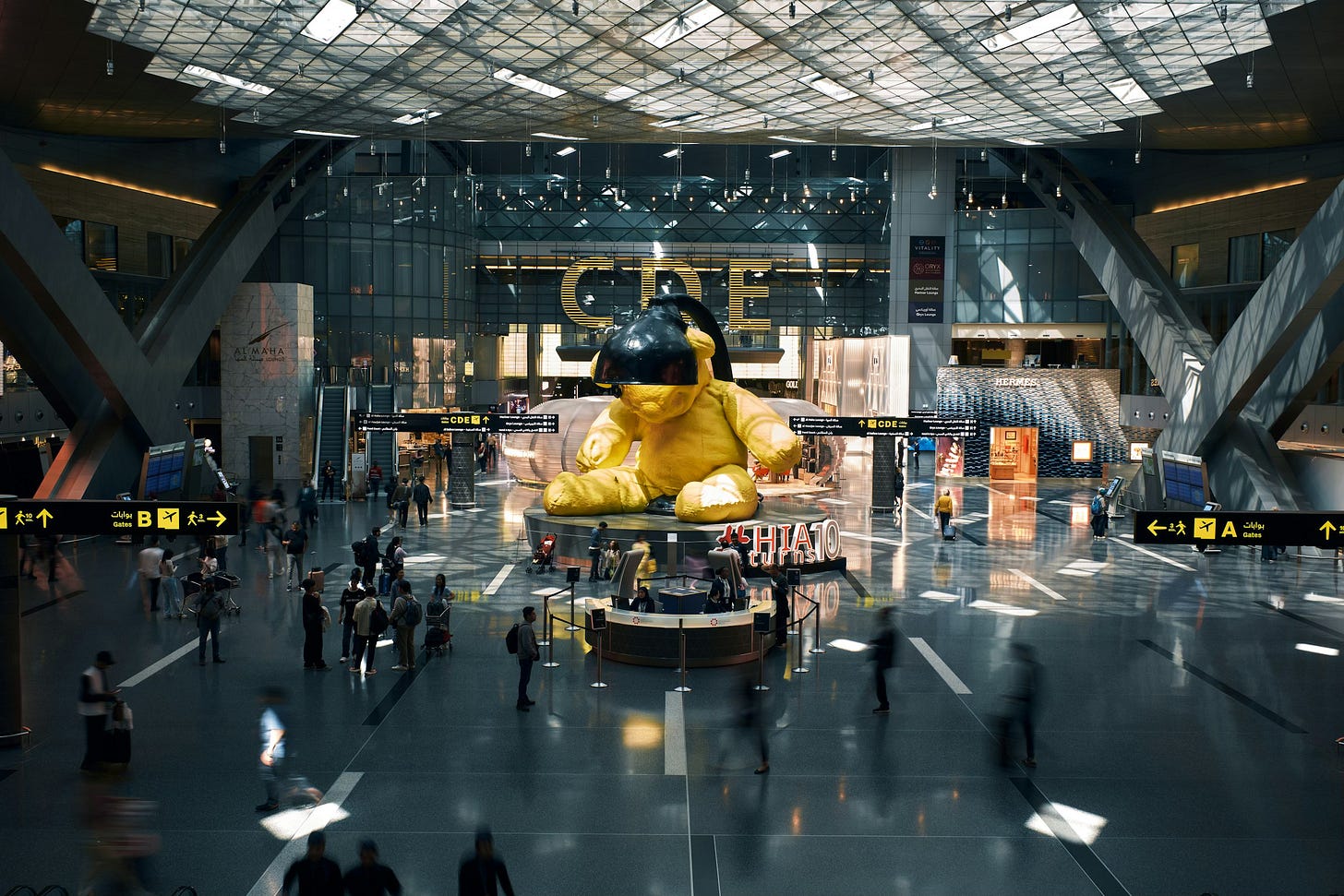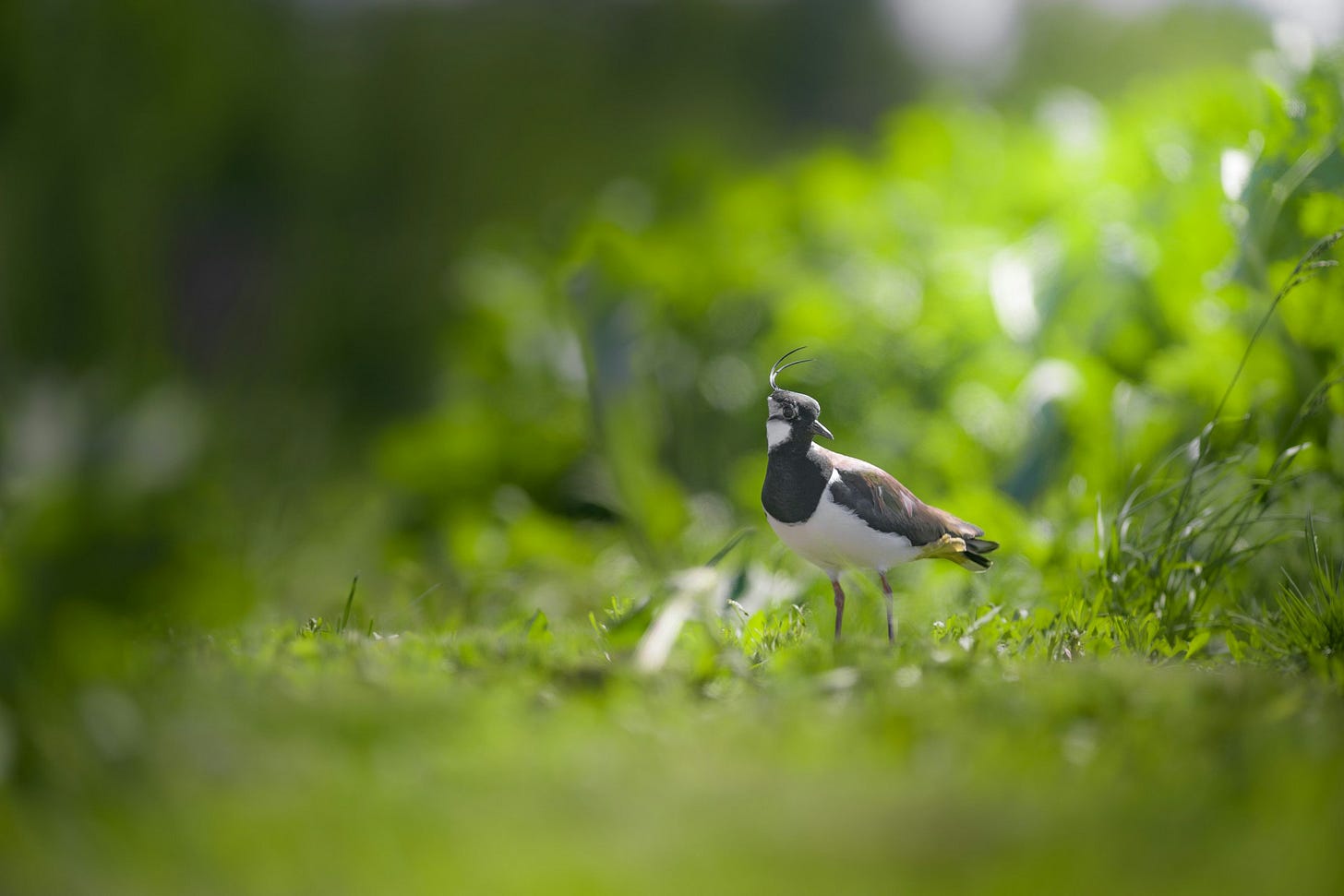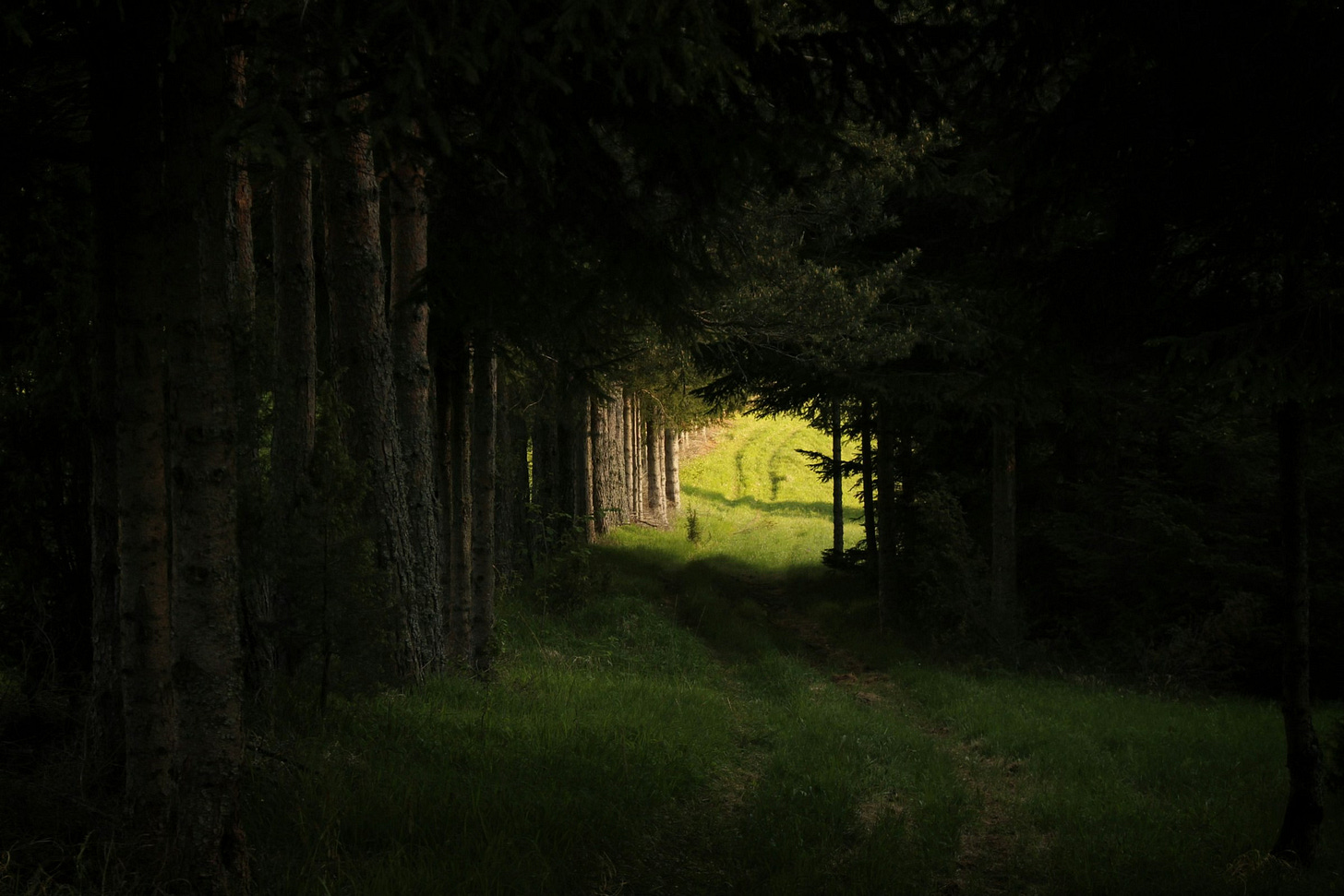Travel and return
Pathways and portals into and out of the present
When COVID struck, I was living in Qatar, helping the country prepare for the World Cup. Qataris are a minority in their own land, accounting for about 10% of the country’s population of some 3 million people.
They are of course full citizens and everyone else is a migrant worker of one kind or another. The vast majority are single male workers from countries like Nepal and Bangladesh who are accommodated in huge camps in the desert. The city of Doha (and everything else) was built by these workers, and everyday the orange uniformed men are bussed in and out of the city’s various building projects.
It was into this context that COVID arrived. No one knew how lethal or contagious the virus was initially. The country sealed the workers in the camps and crossed its fingers.
The average Qatari is extremely wealthy, and all enjoy a lavish lifestyle. The riches from gas extraction are distributed among the elites, but there is plenty that flows into the pockets of the average Qatari. Perhaps because of a sense of privilege, there was an almost immediate push back to the idea of a lockdown and the response was swift.
The compulsory ID cards everyone was assigned on entry were matched to a health status app which tracked any contact with a COVID positive patient. The app was either Green (all good) or Amber (get tested) or Red (stay at home).
In practice, this enabled society to very quickly get back to a state that was fairly near to normal. All the malls, restaurants and hotels had security staff on the door. To gain entry you needed to show you had a Green status on the app.
I will return to the story of COVID in Qatar in a subsequent post.
Coming home everything seemed changed
When I came back to the UK after the worst of COVID had passed, I entered a country I struggled to understand.
For one thing, there were the dramatic lockdowns, particularly the first. Everyone I met wanted to tell me about empty motorways, towns that echoed to bird song but were otherwise silent. There was that spell of fine weather when the countryside suddenly seemed beautiful and present in a strikingly new way. Bubbles were formed and of course there were the dreadful tragedies too, families unable to be with loved ones who died.
All of this was alien to me. My experience of COVID in Qatar was radically different, and although some terrible things happened, life for the most part was not very much changed. The workers’s experience was different however, and I will return to this in another post too.
I think the experience of COVID in the UK burned a scar into everyone who lived through it. No doubt this is why the Party-gate scandal was so deadly to Boris. But I felt something else, something that seemed to have tilted while I was away.
Yearning for return
Throughout the broiling summers in Qatar, I longed to return home. There were many aspects to this. The ability to get in a car and drive anywhere you wanted. The freedom to say what I thought openly in public. Family, friends and a normal life.
I longed to able to walk into the Welsh countryside, sit quietly in a wood under leaves, or climb a wind wracked hill and clamber over the rocks. The green stink of a stiff sea breeze, the sound of gulls wheeling overhead.
I spent far too many hours on Rightmove imagining a new home, an idealised landing spot for the next phase of my life.
In short, I yearned.
The first morning after I got home, I went for a short walk up the hill to the castle and the wood beyond. It was grey December, cool with showers of lead. I walked over a field and into the wood, and heard and saw nothing apart from a buzzard, three magpies and some crows.
I got home feeling dispirited.
The landscape didn't feel alive, had few signs of life. Of course I was ignoring the life everywhere in view, the trees, the beautiful green fields. But I just couldn't see it. I wanted birdsong and foxes and instead got an ugly brown river in flood, ploughed fields and a feeling of emptiness I couldn't shake.
Travelling in good times
One of the great privileges of time spent in the Gulf is its proximity to parts of the map that are less easy to explore from the UK. Qatar is also a very small country, and once you’ve visited its few places of interest, you’re just left with malls and restaurants.
Getting out of Qatar regularly is essential.
As a couple we became frequent travellers, and visited many beautiful and fascinating locations. I know, not very green. Airports became portals to other worlds, doorways into extraordinary experiences.
I loved everything about the journey, from researching a destination to travelling to the airport, even the flight. The arrivals process was always fascinating, your first small window on a new country. Then outside, the light fell differently, buildings spoke in new languages and all the details, roadsigns, shop fronts, places of worship fresh and new.
The bad times
Once I found myself alone, I decided to visit my son and booked a flight. His particular brand of happy is a joy to be around, and it’s always low key and relaxed with him.
At the airport, I experienced a new level of loneliness. This wasn’t one more level, it felt as though I crashed through all the way to the bottom. I was accustomed to travelling with someone at my side, but now all I could see was all the other couples who looked like we once did. It took me years to get past the sense of dread an airport caused me.
Looking back to look forward
The country I live in has changed. I left for Qatar in 2016, a few weeks before the first Trump presidency and a few months after the referendum that took the UK out of the EU. When I came home, the country had also endured the further seismic calamity of COVID.
The country I yearned for while I was away, was the country of my childhood. It was a time when the now empty fields were thronged with lapwing, when I would have found thrushes, yellowhammers and curlews everywhere. The dissonance I felt was partly because I had to experience the diminution of our natural environments as if on a reel fast forwarding into real time.
That older country was also a kinder, less savage place, much less polarised and with a settled idea of itself and its values. There was a greater degree of trust in institutions, the newspapers, churches, courts, even governments. Satire was biting but never merely cruel. It was no golden age, there was still discrimination and poverty and inequality, but we were making progress. Through the 1970’s, progressive legislation rolled back centuries of unfairness. Living standards were rising along with life expectancy.
Returning from Qatar brought the change that swept over us in the period between 2016 and 2020 into focus. And as I began to reckon with this new situation, my personal world spun away into a new orbit too.
All the walking away I have done since the time of my separation, the long tramps into the countryside without an aim, have over time allowed me to acquire perspective. I can now see though I was walking away from unhappiness, I was also walking toward something too.
Through the dark tunnel
Tomorrow is another country just as much as the past. In many ways it is far stranger, because the past is always there in our memories. The future, well, who knows?
I was talking to a new friend recently and I said to her that I felt like a light has been switched back on in the dark tunnel. Meaning I was beginning to imagine a future for myself that realistically was not lonely. To some extent this is mere extrapolation. I am not lonely now, so why would I think the future would be?
But the light also shone with a more generalised hope. Is it possible that all the traumas the world has recently been experiencing might lead somewhere better? Doesn’t a pendulum always swing the other way?
When the future seems bleak, it is the often past I yearn for. Coming home helped me see the past is never really lost. If I can remember, doesn’t that mean in a way, the past is still here? Maybe the past lives on the way the buried rivers of London do. In the dark, occasionally spilling from a culvert to puddle tarmac streets.
And without memory what are we to do?
Well, we can certainly make new memories, and these days I look forward to trips abroad, even when I’m alone. I have recovered the art of entering another world, and look forward to whatever it may teach or show. Increasingly I think of this as entering the 3rd Act of my life, a story which is now mine to write.
The desire to remember is, I realise, what draws me to poetry. Poetry is a memory encoding system, locking a few resonant words together to preserve a feeling, a moment, a time. When we read John Clare’s description of a field mouse, or a familiar pond, we not only see the world as he did, we share it.
And isn’t what we share that makes us who we are?


